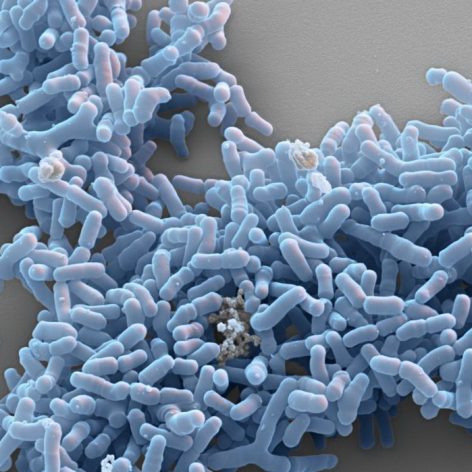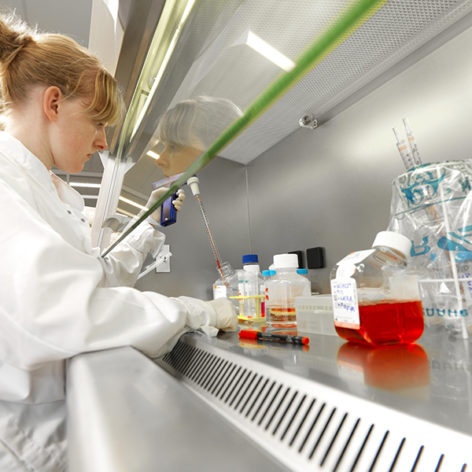Study Title
“Prebiotic-supplemented partially hydrolysed cow’s milk formula for the prevention of eczema in high-risk infants: a randomized controlled trial.”
The PATCH abbreviation stands for Prevention of Allergy Through Cow’s Milk Hydrolysate
Registration link:
http://www.isrctn.com/ISRCTN65195597
http://www.trialregister.nl/trialreg/admin/rctview.asp?TC=548
Study Objective
To investigate the effect of partially hydrolysed protein formula supplemented with specific prebiotics on the occurrence of allergic manifestations in high risk infants up to 3-5 years of age.
Description
Early life is a critical period to establish a balanced gut microbiota and develop a healthy immune system. Disruptions of gut microbiota have been associated with increased risk of allergies. Breastmilk is always the primary recommendation to reduce the risk of allergy. When breastfeeding is not possible, alternative dietary solutions are required.
Methodology
The PATCH study1Boyle RJ, et al. Allergy. Published on 2016;71:701-10 ,2Wopereis H, et al. JACI. Published on 2017 was a multi-centre, double-blind, randomised controlled trial designed to investigate the efficacy of a partially hydrolysed whey protein (pHP) infant formula containing a specific prebiotic mixture (including scGOS/lcFOS [9:1]) in high-risk infants on cumulative incidence of Atopic Eczema Dermatitis Syndrome (AEDS) at the age of 12 months up to 3-5 years of age, compared with standard infant formula. The secondary outcome parameter was the severity of atopic eczema dermatitis, adverse events and immune parameters at six months.
Infants with a family history of allergic disease (and therefore deemed ‘high risk for allergy’), who had started on formula before 18 weeks, were randomised to receive either the active (partially hydrolysed whey formula containing oligosaccharides, n = 432) or control formula (standard cow’s milk formula with intact protein, n = 431) until 6 months of age.
Countries: United Kingdom, Ireland, Singapore, Australia
Study results
The study showed that in high risk infants for allergy, pHP infant formula with specific prebiotics including scGOS/lcFOS (9:1):
-
- Supports natural development of gut microbiota, with a microbiota profile closer to breastfed infants (increased levels of bifidobacterial) 3Wopereis H. et al. JACI. Published on 2017
- Did not affect the risk of eczema development in the total study population 4Boyle RJ, et al. Allergy. Published on 2016;71:701-10 ,5Wopereis H, et al. JACI. Published on 2017
- May promote natural development of oral tolerance, through increase of immune cells involved in oral tolerance acquisition 6Boyle RJ, et al. Allergy. Published on 2016;71:701-10 ,7Wopereis H, et al. JACI. Published on 2017
Significant reduction in cow’s milk specific IgG1 (marker of allergic sensitisation)
Significant higher percentages of Treg and pDC (markers of tolerance induction)

